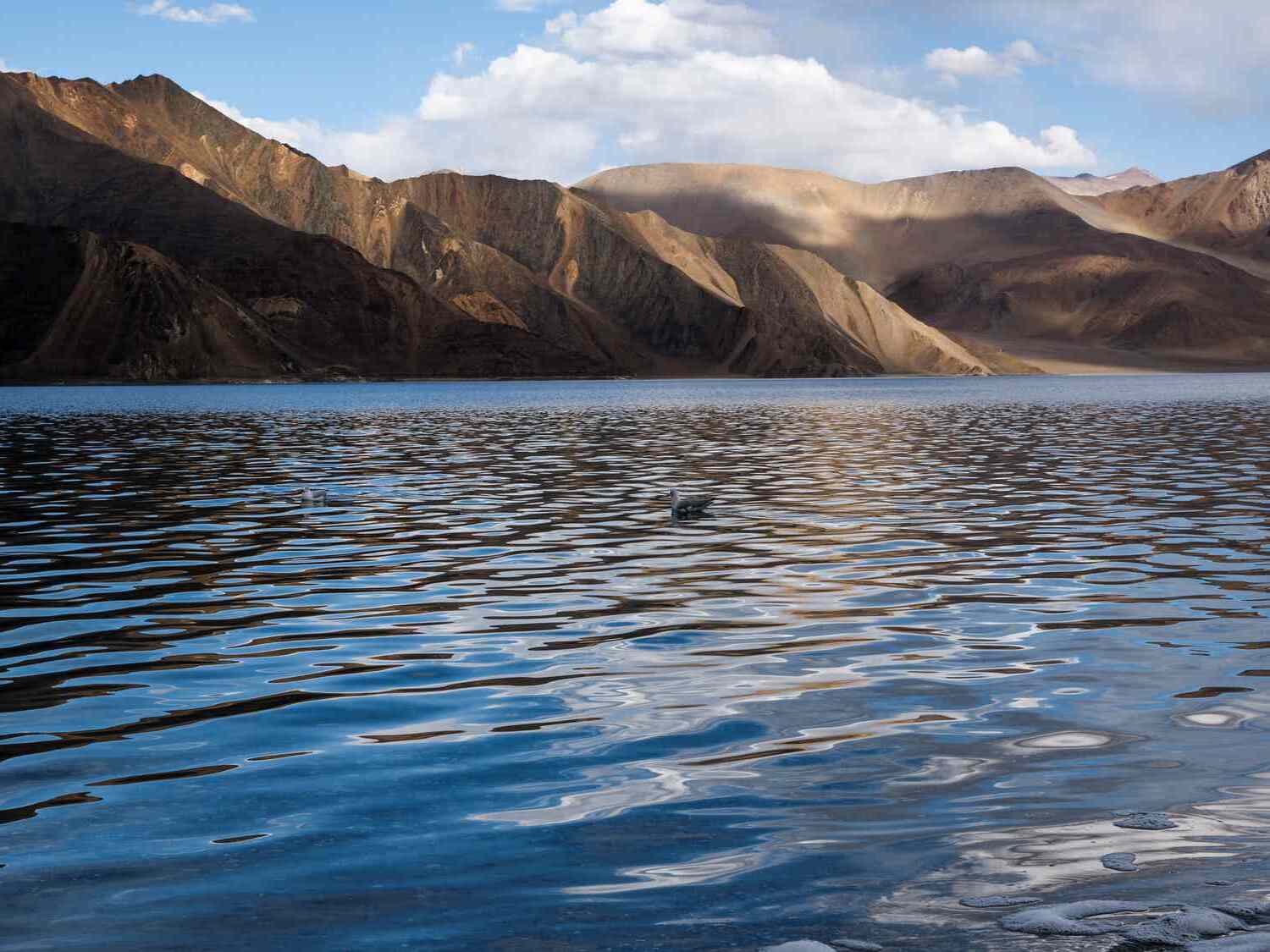
Lake tourism offers a serene escape from the hustle and bustle of city life, providing a unique blend of relaxation, adventure, and natural beauty. Lakes, with their tranquil waters and picturesque surroundings, are perfect destinations for those seeking peace or an adrenaline rush through water sports and hiking. From the majestic Great Lakes of North America to the placid waters of Lake Como in Italy, each lake has its own story, ecosystem, and cultural significance. This introduction to lake tourism will highlight 25 fascinating facts about these natural wonders, including hidden gems, conservation efforts, and how these bodies of water contribute to local economies and cultures around the globe. Whether you're a seasoned traveler or someone looking for your next vacation spot, understanding the allure of lakes will surely inspire your next journey.
What is Lake Tourism?
Lake tourism refers to leisure activities and experiences centered around lakes. These bodies of water offer serene landscapes, recreational opportunities, and a chance to connect with nature. From boating and fishing to hiking around scenic lake shores, this form of tourism attracts individuals seeking tranquility and adventure alike.
Why Do People Choose Lake Tourism?
-
Scenic Beauty: Lakes are often nestled in picturesque settings that offer breathtaking views. Their calm waters reflect the sky, mountains, and trees around them, creating a peaceful environment for relaxation and photography.
-
Recreational Activities: Lakes provide a playground for various activities such as swimming, kayaking, paddleboarding, and fishing. These activities cater to all age groups, making lakes ideal destinations for families and adventure seekers.
-
Connection with Nature: Being by a lake allows visitors to disconnect from the hustle and bustle of daily life and reconnect with nature. The serene atmosphere promotes mindfulness and well-being.
-
Wildlife Observation: Lakes are habitats for diverse wildlife, including birds, fish, and aquatic plants. Birdwatching and fishing are popular activities that also contribute to wildlife conservation efforts.
Popular Lake Destinations Around the World
-
Lake Como, Italy: Known for its dramatic scenery, set against the foothills of the Alps, Lake Como attracts tourists with its luxurious resorts, historic villas, and water sports.
-
Lake Tahoe, USA: Straddling the border between California and Nevada, Lake Tahoe is famous for its crystal-clear waters, ski resorts, and hiking trails.
-
Lake Bled, Slovenia: This lake is renowned for its medieval castle perched on a rocky cliff and a picturesque island with a church in the middle of the lake.
-
Lake Pichola, India: Surrounded by palaces, temples, and bathing ghats, Lake Pichola in Udaipur is a testament to the architectural grandeur of the Rajput era.
Environmental Impact and Sustainability
-
Preservation Efforts: Many lake destinations implement conservation programs to protect their natural beauty and biodiversity. These efforts include regulating tourism activities, promoting eco-friendly practices, and engaging local communities in preservation.
-
Challenges: Despite preservation efforts, lakes face environmental challenges such as pollution, water level fluctuations due to climate change, and habitat destruction. Sustainable tourism practices are crucial to mitigate these impacts.
-
Eco-friendly Practices: Tourists can contribute to lake conservation by following eco-friendly practices, such as using biodegradable products, respecting wildlife, and participating in clean-up activities.
Economic Benefits of Lake Tourism
-
Local Economies: Lake tourism supports local economies by creating jobs in hospitality, recreation, and conservation sectors. It also stimulates the growth of local businesses, including restaurants, souvenir shops, and tour services.
-
Infrastructure Development: Tourism revenue can fund the development of infrastructure, such as roads, public facilities, and conservation areas, enhancing the overall visitor experience and environmental protection.
-
Cultural Preservation: Lake tourism offers opportunities to showcase and preserve local cultures and traditions. Cultural festivals, art, and cuisine associated with lake regions contribute to the richness of the tourist experience.
Future Trends in Lake Tourism
-
Sustainable Development: There is a growing emphasis on sustainable development in lake tourism, focusing on balancing economic growth with environmental protection and community well-being.
-
Technology Integration: Advances in technology, such as virtual reality tours and online booking platforms, are making lake destinations more accessible and enhancing the visitor experience.
-
Health and Wellness: Lakes are becoming popular settings for health and wellness retreats, offering activities like yoga, meditation, and spa treatments in natural surroundings.
-
Adventure Tourism: Demand for adventure tourism is rising, with lakes offering new activities like drone photography, underwater exploration, and extreme water sports.
Unique Lake Experiences
-
Ice Skating on Frozen Lakes: In colder climates, some lakes freeze over in winter, providing a unique opportunity for ice skating and ice fishing.
-
Floating Markets: Lakes in Southeast Asia, such as the famous Damnoen Saduak in Thailand, host vibrant floating markets where visitors can shop from boats filled with local produce and handicrafts.
-
Midnight Sun and Northern Lights: Lakes in the Arctic Circle, like those in Finland and Norway, offer the magical experiences of the midnight sun in summer and the northern lights in winter.
-
Cultural Ceremonies: Many lakes are significant in local cultures, hosting ceremonies and festivals. For instance, Lake Titicaca in South America is the site of traditional Inca ceremonies.
-
Eco-friendly Accommodations: Eco-lodges and sustainable resorts around lakes are gaining popularity, offering environmentally conscious travelers comfortable yet minimal-impact stays.
-
Wildlife Safaris: Lakes in wildlife-rich regions, such as Lake Nakuru in Kenya, are prime spots for safaris, where visitors can observe animals like flamingos, rhinos, and lions in their natural habitats.
-
Underwater Archaeology: Some lakes, like Lake Titicaca, have underwater archaeological sites that can be explored through guided dives, revealing ancient civilizations and sunken treasures.
A Final Dip into Lake Tourism
Lake tourism isn't just about splashing around in freshwater or lounging by the shore. It's a deep dive into nature's embrace, offering a blend of adventure, relaxation, and unforgettable memories. From the serene to the spectacular, lakes around the globe beckon travelers with their unique charms and hidden treasures. Whether you're kayaking under the shadow of ancient mountains, fishing in crystal-clear waters, or simply enjoying a sunset that paints the sky in hues of gold and pink, lake vacations cater to every mood and interest. Remember, each lake holds a story, a slice of local culture, and an invitation to explore the great outdoors. So, next time you're planning a getaway, consider the tranquil allure of lake tourism. It's your chance to connect with nature, recharge your batteries, and create stories that'll last a lifetime.
Was this page helpful?
Our commitment to delivering trustworthy and engaging content is at the heart of what we do. Each fact on our site is contributed by real users like you, bringing a wealth of diverse insights and information. To ensure the highest standards of accuracy and reliability, our dedicated editors meticulously review each submission. This process guarantees that the facts we share are not only fascinating but also credible. Trust in our commitment to quality and authenticity as you explore and learn with us.


